“In the beginning God created the heavens and the earth…In the beginning was the Word, and the Word was with God, and the Word was God…“I am the living bread which came down from heaven: if any man eat of this bread, he shall live forever: and the bread that I will give is my flesh, which I will give for the life of the world!”
(Genesis 1:1[See “Torah Portion” below]; John 1:1; John 6:51)
1. ARMIES ARRAYING IN THE NORTH…A GROUNDWORK IS BEING LAID…
The Sukkot reading from the Prophets (haftarah) for this past week was Ezekiel 38:10—39:16. It concerns a military alliance which will come up against Israel in the last days. The army will enter from the north and come into “the mountains of Israel” (39:2, 4). The Hebrew Scriptures mention various individual mountains in the land of Israel, but the phrase “the mountains of Israel” always refers in particular to the area of Judea and Samaria. It is the Land through which Abraham walked, from his first coming into the land at Shechem (modern-day Nablus), down through Bethel (a mile from the present Palestinian city of Ramallah), continuing southward through Jerusalem and the “Mountain of YHVH” where He has placed His Name, then onward through Bethlehem, and finally to Hebron, the town in which the LORD, in human form communed with Abraham as a friend (Genesis 12:6, 8; 18:1-33). In short, it is that area within which the Most High released Covenant uniting the descendants of Abraham, Isaac and Jacob with the Land. This same area was captured by a reborn Israel from the Kingdom of Jordan during the 1967 War. And it is these “Mountains of Israel” which the World at large is demanding be yielded up as a permanent (Muslim) Palestinian State (This past week the United Nations allowed a Palestinian “state flag” to be raised among those of recognized nations at UN Headquarters in New York).
According to the Ezekiel passage above, it is this specific area which in latter days will be invaded by a northern military coalition overseen by a spiritual “prince” called Gog. The early verses of Ezekiel 38 list what appear to be the subservient powers in his coalition—Rosh, Meshech, Tubal, Togarmah, Gomer—to which, in turn, have become allied Persia (modern-day Iran), Cush (although in modern times referring to Ethiopia, it could well here encompass Sudan), and Put (probably an area of north-Africa west of Egypt). A book in our possession (Biblical Sites in Turkey: Everett C. Blake & Anna G. Edmonds, Redhouse Press, Istanbul, 1977) bears a map entitled “Ancient Anatolia” (Anatolia being the peninsula of modern-day Turkey). Near the center of this peninsula is an area labeled which the map calls “Meshech”—southeast of this is “Tubal”, and the area eastward, just west of the headwaters of the Euphrates, is labeled “Togarmah”. To the north, east of the Black Sea in present-day Russia, is “Gomer”. Most of these names may be found in the Bible as ancient descendants of Japheth. We would suggest that they came later also to designate spiritual powers of darkness which took possession in the heavenlies over the areas in which these peoples settled (as a “prince of Persia” is shown in the Book of Daniel to have done the same in that region). Whatever the absolute locations of these domains of darkness, these passages in Ezekiel make clear that under their influence, physical armies from regions to the north of Israel will become allied with those of Persia (Iran) and parts of Africa, and will come up against Israel. Although their intents, both spiritual and human, will be evil, Ezekiel 39:1-4 shows us that the Lord GOD Himself , Who can turn the minds of kings, will be the ultimate factor behind their decision to come into the Mountains of Israel—and a total and devastating defeat awaits them! God’s redemptive purposes in this will be to bring life-giving knowledge of His Name to 1) the people of the very nations which came against Israel, 2) to Israel herself, and 3) all the nations of the world who will observe what takes place there! (Ezekiel 39:6b, 7). It has always been His plan that in His workings through this people and their Land, blessing would be released to all the families of the world (Genesis 12:3).
We mentioned at Rosh HaShanah that the very letter-numbers for this new year śłņå (5776) spell a Hebrew word—“to take heed, regard, notice”. We believe we would do well to “take heed and notice” how, in the same week as Israeli Jews were reading in their synagogues of a future alliance of powers coming from the North, Russia sealed a pact with the ayatollahs of Iran and the President of Syria and moved troops aircraft and military hardware into northern Syria, along with inviting Iranian troops to join them there.
As this alliance’s presence was taking form to Israel’s north, another “groundwork”, this time of a falsified propaganda nature, may have been being laid by Russia in regards to Poland. On 25 September, the Russian ambassador to Poland Sergey Andreev released the shocking suggestion that, rather than an act of blatant aggression, the Soviet invasion of that country in 1939 was an act of “self-defense” for which Poland bore responsibility: “Polish policy led to the disaster in September 1939, because during the 1930s Poland repeatedly blocked the formation of a coalition against Hitler’s Germany. Poland was therefore partly responsible for the disaster which then took place.” The truth, of course, is that prior to 1 September 1939, Russia and Nazi Germany had sealed a pact with a secret provision by which Poland with other parts of Eastern Europe would be carved up and divided between the invaders. In September 1939, sixteen days after Germany invaded Poland from the west, Stalin’s Russian forces entered from the east. In the following war and its aftermath, millions of the Polish people were slaughtered at the hands of the Nazis and the Russians (“Russia blames Poland for sparking WWII”: ynet-news.com; 26 Sept 2015). By re-writing history to blame Poland for being invaded in 1939 because of not joining a “coalition against Hitler’s Germany”, might Russia be creating a precedent for excusing itself for invading Syria under the pretense of a “coalition against ISIS”? –or for invading parts of the Crimea and Ukraine –or other future planned invasions?
Meanwhile in Turkey, the Islamist President Recep Erdogan warned Israel that she is “playing with fire” by her actions on the Temple Mount in Jerusalem, that “what is taking place at al-Aqsa mosque is a crime against the entire Islamic world.” There have been repeated violent disturbances by Islamists on the Mount since the beginning of the Fall Festivals—including the attacking of non-Muslim visitors, and the stockpiling of weapons including pipe-bombs in the Al-Aqsa mosque. Any attempts by Israel to reign in the actions of the militants has been met with angry accusations and warnings from leaders of Muslim countries around the world. Erdogan went further, claiming that “the struggle over the mosque doesn’t belong just to Muslims but also to Christians.” Palestinian and some other Muslim leaders have recently adopted (at least for the present) a strategy of portraying Israel as violator of both Muslim and Christian interests in the Holy Land. Even though Christian visitors to the Mount continue to be harassed along with the Jewish visitors.
Russia, Iran, Syria, Turkey…We are not saying that the great battle portrayed in Ezekiel 38 and 39 has begun. But we believe we must be awakened and alert to the fact that the powers are beginning to array themselves. The name with which YHVH (Yehovah/Yahweh/the LORD) is most often combined in the Hebrew Bible is Tzeva’ot—“Armies”—(YHVH Tzeva’ot, YHVH of Armies, the LORD of Hosts). Our Saviour and our King YESHUA is Himself the Captain of the Armies of YHVH. As we see nations beginning to align and positioning themselves, we must, from whatever nation we are come, look to this Captain, not only for our Hope and final Victory– but for our instruction right now. We must know where our “place” is. We must “come into array.” What are our designated responsibilities for right now?—and what will be needed to prepare both ourselves and those we influence for the near future. And, as we prevail for our families and nations, let us attend to what we are all in Psalm 122:6 admonished to do—“Ask after the peace of Jerusalem…” In that asking, He will show us each how best, from our place, at that moment, to pray!! “…until her righteousness goes forth like brightness, and her salvation like a flaming torch” (Isaiah 62:1)
And until:
“Israel dwells in security, the fountain of Jacob secluded, in a land of grain and new wine; His heavens also drop down dew. Blessed are you7, O Israel; Who is like you, a people saved by YHVH, Who is the shield of your help and the sword of your majest so your enemies will cringe before you. And you will tread upon their high places.” (Deuteronomy 33:28-29: See the final Torah Reading below.)
2. SIMCHAT TORAH!—“THE JOY OF TORAH!”
(Beginning Sunday evening 4 October in Israel—Monday evening 5th October in other nations)
Torah: Deuteronomy 33:1—34:12
Genesis 1:1—2:3
Haftarah: Joshua 1:1—18
Simchat Torah is the joyous day on which the year-long weekly readings through the five Books of Moses are concluded. It begins in Israel on the evening preceding the eighth day of Sukkot, that last day which, like the first, is to be observed as a day of rest, a “Shabbat” (Leviticus: 23:34-36; 39). Outside of Israel Simchat Torah is celebrated on the following ninth day (beginning on the evening of the eighth). There is great rejoicing in the synagogues and messianic congregations during this celebration, with song, proclamations, and dancing with the Torah scrolls which have been taken out of their “arks”. For this final Torah Reading the poignant last two chapters of Deuteronomy are read. Then the Scroll is rolled back to the beginning, the book of Beresheet…“In the Beginning”—and as Chapter One and the first three verses of Chapter Two of Genesis are read, the cycle begins anew! Finally, the closing Haftarah carries the story on after the death of Moses through the first chapter of the Book of Joshua. A new generation of Israelites are poised to enter the Land and their leader is charged by the LORD:
Chazak v’Ematz Me’od!—“Be Strong and very Courageous…that you may observe to do according to all the instruction (Lit. Hebrew: torah) which Moses My servant commanded you; do not turn from it to the right hand or to the left, that you may prosper wherever you go. This Book of the Torah shall not depart from your mouth but you shall meditate in it day and night, that you may observe to do according to all that is written in it. For then you will make your way prosperous and then you will have good success (Literal Hebrew: “act with godly insight”). Have I not commanded you? Chazak v’Ematz!—Be strong and of good courage! Do not be afraid, nor be dismayed, for YHVH your God is with you wherever you go! (Joshua 1:7-9).
The word torah means a “direction” or “teaching” (Young’s Concordance). Many heavenly “directions and teachings” were released through the Hebrews as the “oracles of God” (Romans 3:2), and their love for and attentiveness to them is reflected in the Psalms: “Blessed is the man who walks not in the counsel of the ungodly…but his delight is in the torah of YHVH—the LORD” (Psalm 1:1-2); “The torah of YHVH is perfect, converting the soul” (Psalm 13:7); “The mouth of the righteous speaks wisdom, and his tongue talks of justice. The torah of his God is in his heart; none of his steps shall slide” (Psalm 37:30-31). In Psalm 119 alone the LORD’s torah is mentioned at least 25 times!
“THE Torah” usually refers to that “direction and teaching” chronicled by Moses in the first five books of the Bible, sometimes referred to in English as the “Law of Moses.” Although “law” can be a legitimate translation for the word torah, certain perspectives and teachings on “The Law” have resulted in error amongst both Jews and Gentile Christians. There is error in believing that an attempt to keep all of the directives in The Torah will make a person righteous and atone for his or her sin. The Torah itself teaches that God must ultimately Himself provide atonement for His people (Deuteronomy 32:43). Rather than focusing on following rules, His people are to “choose life” in loving and obeying and clinging to Him (Deut. 30:19-20). By faith Abraham believed God and it was counted to him as righteousness (Gen. 15:6) by the “Righteousness-God” (Psalm 4:1).
Yet for many evangelical Christians “The Law” or “The Torah” have become negative expressions because of instruction which seems to imply that because of the work of Messiah, the teachings within the Torah do not even pertain to us anymore. This also contains error. Many of the types, ceremonies, rituals and sacrifices mentioned in the first five books of the Bible as necessary for Israel to walk in fellowship with her God were indeed fulfilled and superseded by the work of Yeshua the Messiah. But the directions and teachings of the Law of Moses regarding the nature of God and of Humankind, of sin, of God’s desire to dwell with us, of His promises to the Fathers, remain as relevant today for knowing the Father and His Son as they ever were. The Torah is filled with our Lord Yeshua (Jesus). It is an essential part of the Scriptures “which testify of Him” (John 5:39); “For if you believed Moses, you would believe Me; for he wrote about Me” (John 5:46); “And beginning at Moses…He expounded to them in all the Scriptures the things concerning Himself” (Luke 24:27); “There are the words which I spoke to you while I was still with you, that all things must be fulfilled which were written in the Torah of Moses…concerning Me…And He opened their understanding, that they might comprehend the Scriptures” (Luke 24:44-45).
Please pray that Jews who this week genuinely rejoice in The Torah will be moved by the Holy Spirit to read more of its teaching themselves (unaided by their commentaries), that they would humble themselves to ask God to interpret as they read and to reveal to them His truth and salvation.
THIS WEEK’S TORAH PORTION:
From ancient times there has been a weekly portion (Parashah) from the first five books of Moses (The Torah) and an ending (Haftarah) from the Prophets read on the Sabbath in synagogues around the world. This portion is given a Hebrew name drawn from the opening words of the Torah passage. An illustration of this practice appears to have been recorded in Luke 4:16 where Yeshua (Jesus) arrived in the synagogue in Nazareth and was asked to read the portion (Isaiah 61) from the Prophets. We have found that in perusing these weekly readings, not only are we provided opportunity to identify in the context of God’s Word with millions of Jewish people around the world, but very often the Holy Spirit will illumine specific passages pertinent that week in our intercession for the Land and people of Israel. All texts are those of English translations of the Scriptures.
5-10 October 2015
A NEW CYCLE BEGINS!
This weekend the cycle through the Torah begins anew. This first reading is called B’resheet—“In the Beginning”.
TORAH: Genesis 1:1—6:8
HAFTARAH : Isaiah 42:5—43:10
TORAH
*Genesis 1:1-5. “In the beginning Elohim (English: God) created the heavens and the earth. The earth was without form, and void; and darkness was on the face of the deep. And the Spirit of God was hovering over the face of the waters. Then Elohim said, “Let there be light; and there was light. And Elohim saw the light, that it was good; and Elohim divided the light from the darkness. Elohim called the light Day, and the darkness He called Night. And there was evening and there was morning, one day.”
As we open to the first chapter of this divinely–breathed (II Timothy 3:16) book, ELOHIM—GOD is simply there–creating. The SPIRIT of God is there (vs 2). And as God speaks, His living WORD is there (Vs 3; John 1:1). Elohim is a Hebrew word translated into English God. It is a plural word, which could be translated “gods” or “exalted beings”—yet, when referring to the Hebrew God Who is over all, it is always accompanied with a singular verb.
*Genesis 1:3. “God said: ‘Let there be light!’ And there was light.” The Scriptures do not say that God “created” light (God Himself is light, I John 1:5). Rather, He spoke it forth—“Be light!”—and it was released into His creation! John 1:1-9 speaks of Yeshua as being God’s Word, in whom was life “which is the light for men”.
There are a number of words used for God’s actions during these early “beginnings” chapters: creating (from nothing that is seen, Hebrews 11:3); making; building; fashioning or shaping (out of something already created); working (Interestingly, for bringing into being the “adam” (man) in His image, both the acts of creating and fashioning are used (Genesis 1:2, 2:7).
*Genesis 1:5. “And there was evening and there was morning, one day.” Today, in Israel all days for religious observance (such as the Sabbath or feast days) are reckoned from sundown the evening before rather than sunrise.
*Genesis 2:3. “And on the seventh day Elohim ended His creative work which He had done, and He ceased on the seventh day from all His creative work which He had done. Then Elohim blessed the seventh day and sanctified it (Hebrew: “made it holy”), because in it He ceased from all His creative work which Elohim had created and made”. It is significant that the first place in Scripture in which we see God making something “holy” or “set apart” is here in relation to the seventh day of the week when He shabbat—“ceased working”.
*Genesis 1:27. “So God created man in His image, in the image of Elohim He created him; masculine and feminine He created them.” “Man” in Hebrew is adam. In Genesis 2:7, we are shown that Elohim formed the adam out of adamah—“earth” (which, in turn, is adomah—“reddish in colour”). The modern-day Hebrew term for “human being” is still benei-adam—“son (or child) of adam.” From this passage it is clear that God, although always referred to in the masculine gender, bears, nevertheless, within His nature both the masculine and feminine which is transferred into the nature of those created “in His image”.
By the end of Chapter 3 that image is marred and what had received the breath of life is, because of sin, already dying. In 4:1 the man and womn have begun to reproduce, and realize that their Creator and the One through whom this new life comes has a name, YHVH (Yehovah, “The LORD”). Their sons bring offerings to this YHVH (4:3); yet it will be many generations before Humankind comes to know and use that Name in a personal and intimate sense (Exodus 3:15b; 6:2-3).
In Genesis 4:8 murder is committed, and Abel, a good man whose sacrifice pleased God, becomes the first man to die. It is interesting that Abel’s name in the Hebrew is spelled the same as the Hebrew word for “vapour” or “vanity” (This word both begins and permeates the book of Ecclesiastes which we have been reading during the feast of Sukkot.). Life is but a vapour which is here and passes away, and the life of Abel the good and that of Cain the wicked are both temporary.
*Genesis 2:24. “Therefore a man (Hebrew: ish) shall leave his father and mother and be joined to his woman (Hebrew: isha), and they shall become one flesh” (NKJV).
Here the Creator lays out clearly right at the beginning and for all time His ordained order for his human creatures’ being joined together in what we call marriage—(His Son, the Messiah Yeshua would corroborate it in Matthew 19:4-6). Attempting to become ‘one flesh’ in any other kind of relationship besides “man and woman” steps outside of this ordained order, and is strictly forbidden for all humankind (Leviticus 18:22-23; 20:13,15; Romans 1:26-27). The holy alternative “for the sake of the Kingdom of Heaven” is celibacy (Matthew 19:12).
*Genesis 4:26. “And as for Seth, to him also a son was born; and he named him Ehnosh.”
It was perhaps with an awareness of the death of his brother Abel, as well as of the sin-sickness obviously at work in his eldest brother Cain that Seth chose to name his first son Ehnosh. Ehnosh is often translated into English “man” (Psalm 8:4, “What is man (ehnosh) that You are mindful of him, and the son of man (ben-adam) that you visit him?”). But the word more literally means “mortal”. Just as English “mortal” has to do with that in man which dies (“mortuary” is related to that word), so ehnosh has within it a reference to the fallen effect of sin in the children of Adam. Ehnush, a word using the same Hebrew letters, appears in Jeremiah 17:9 where it says that the heart is deceitful above all things and “desperately wicked” (NJKV), “desperately sick” (ESV and NAS), “beyond cure” (NIV).
By Genesis 6 the earth is corrupted through sinful man in conjunction with rebellious angelic beings. “Then YHVH saw that the wickedness of man was great in the earth, and that every intent of the thoughts of his heart was only evil continually…So YHVH said, ‘I will destroy the man (Hebrew: the adam) whom I have created from the face of the earth (Hebrew: the adamah).’ But Noah found grace in the eyes of the LORD” (6:5,7a, 8). To “find grace in the eyes of” is an expression which is still common in modern Hebrew, meaning “to bring pleasure to.”
PLEASE PRAY: that today, when“as it was in the days of Noah” (Matthew 24:37), we are faced with a rapidly rising darkness of evil on the earth, there will also arise not one but a multitude of latter-day “Noah’s”—who will bring pleasure to their LORD, who will “walk with God”, who will “find grace in His eyes.” The English translation of a popular Hebrew worship song, written some years back by an Israeli teenager reads:
Come Spirit, Come Spirit, Come today/The Desire of my heart is to find grace in your eyes/The desire of my soul is to be more like you/Come God, Dwell within me, Make me pure/Focus my eyes on what pleases You that I may be devoted to You
–Boi Ruakh. ©2004 by Keren Seguin
HAFTARAH
*Isaiah 42:5-7. “Thus says God the LORD, Who created the heavens and stretched them out, Who spread forth the earth and that which comes from it, Who gives breath to the people on it, and spirit to those who walk on it: ‘I, YHVH, have called you in righteousness, and will hold your hand; I will keep you and give you as a covenant to the people, as a light to the Gentiles, to open blind eyes, to bring out prisoners from the prison, those who sit in darkness from the prison house.’”
*Isaiah 43:1-3b. “But now, thus says the LORD, who created you, O Jacob, and He who formed you, O Israel: ‘Fear not, for I have redeemed you; I have called you by your name; You are Mine. When you pass through the waters, I will be with you; and through the rivers, they shall not overflow you. When you walk throu8gh the fire, you shall not be burned, nor shall the flame scorch you. For I am the LORD your God, the Holy One of Israel, your Saviour.”
*Isaiah 43:5-7. “Fear not, for I am with you; I will bring your descendants from the east, and gather you from the west; I will say to the north, ‘Give them up!’ and to the south, ‘Do not keep them back!’ Bring my sons from afar, and my daughters from the ends of the earth—everyone who is called by My name, whom I have created for My glory; I have formed him, yes, I have made him.’”
*Isaiah 43:10. “‘You are my witnesses,’ says the LORD, ‘and my servant whom I have chosen, that you may know and believe Me, and understand that I am He. Before Me there was no God formed, nor shall there be after Me.’”
Martin and Norma Sarvis
Jerusalem
[The readings for next week (11-17 October) are called Noach—“Noah”. TORAH: Genesis 6:9—11:32; HAFTARAH: Isaiah 54:1—55:5]

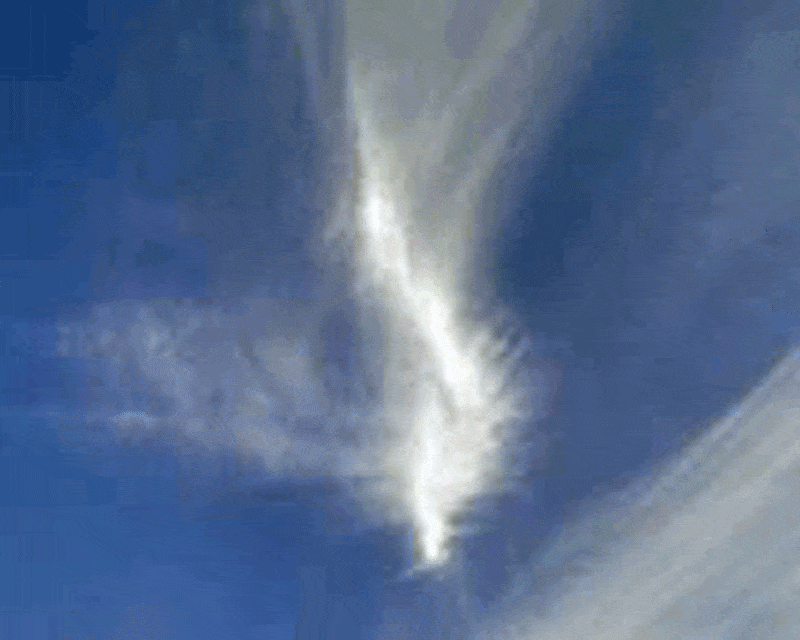
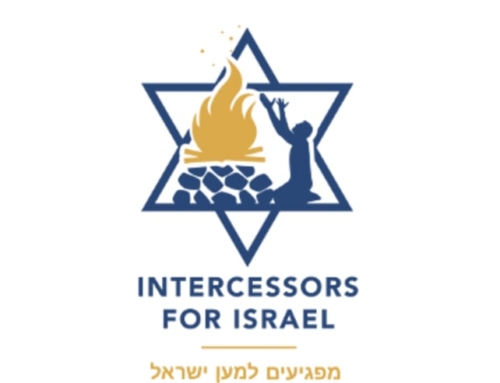
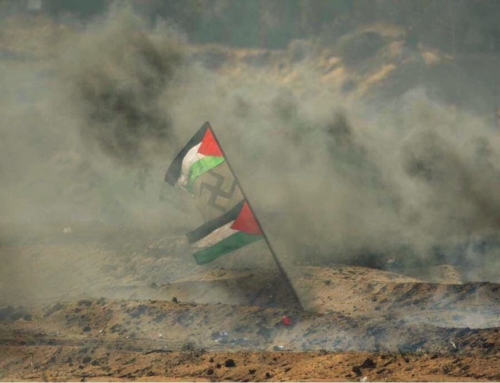
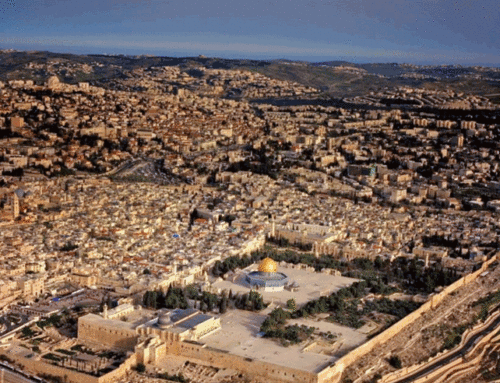
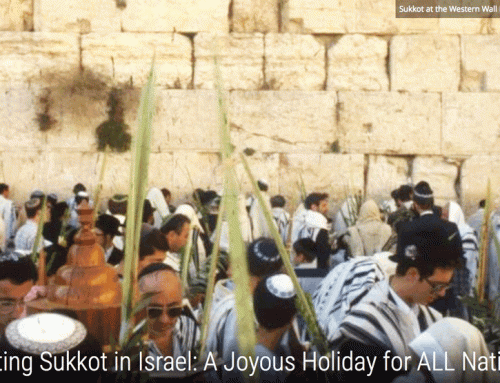
Leave A Comment